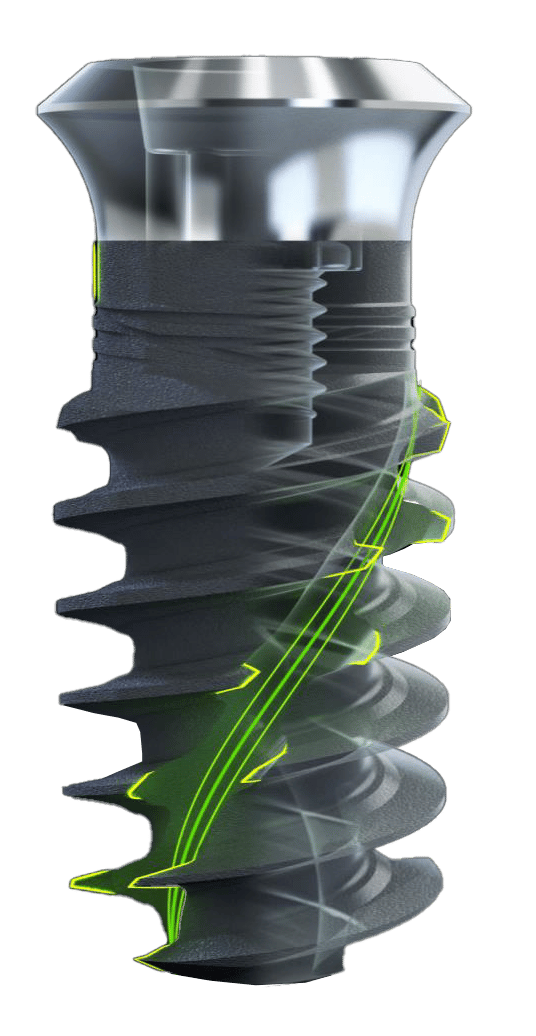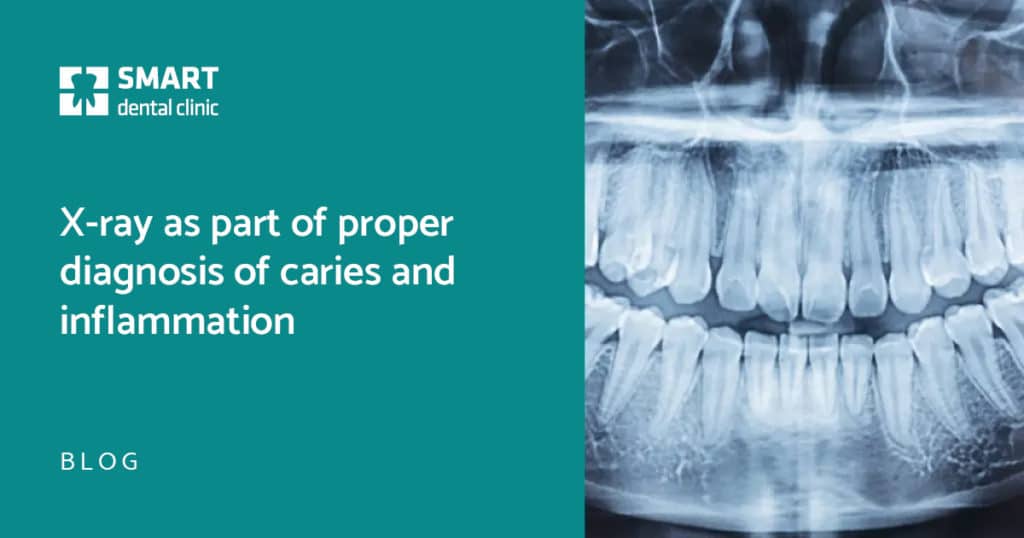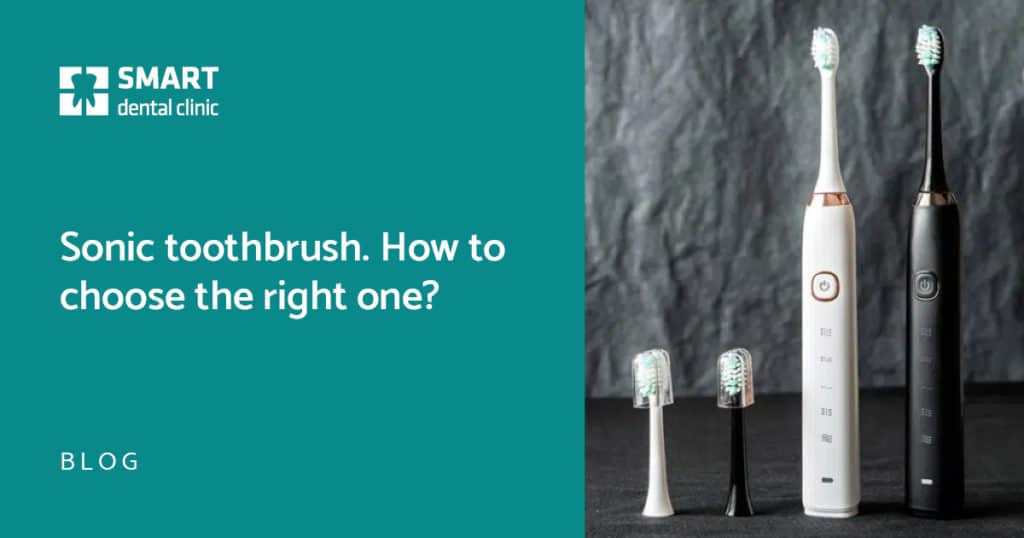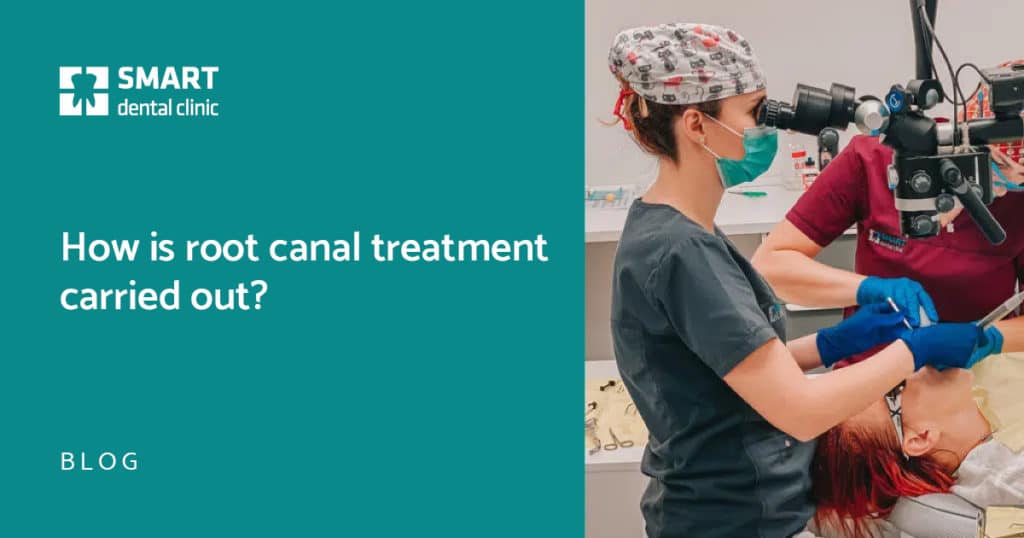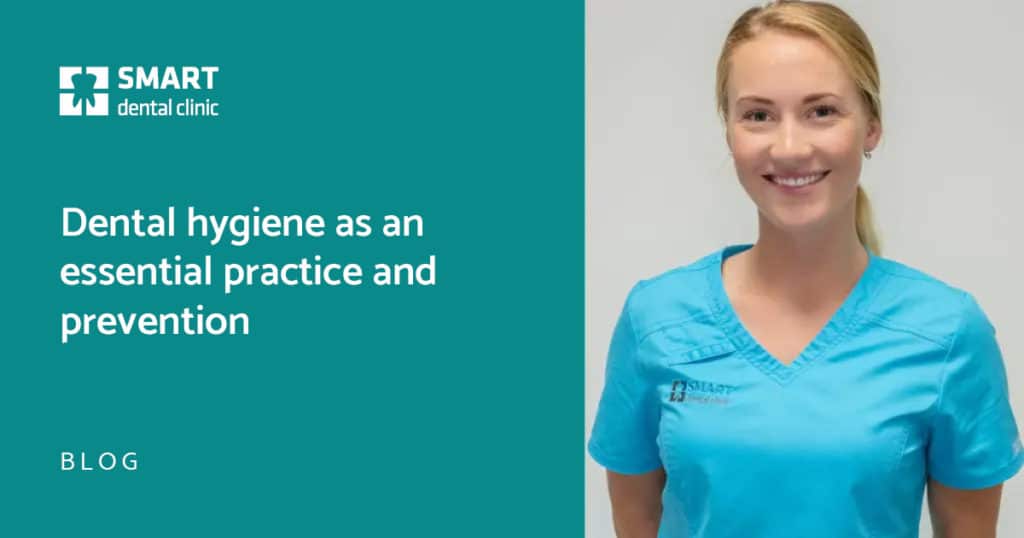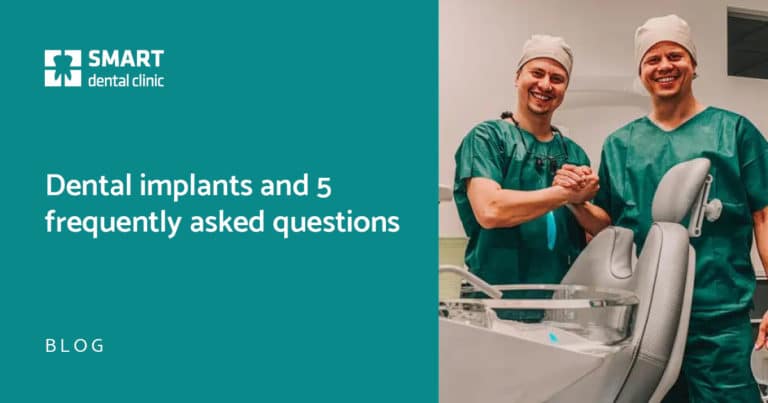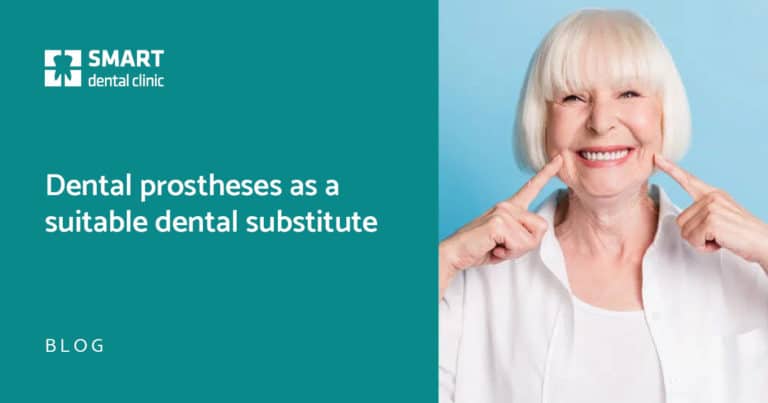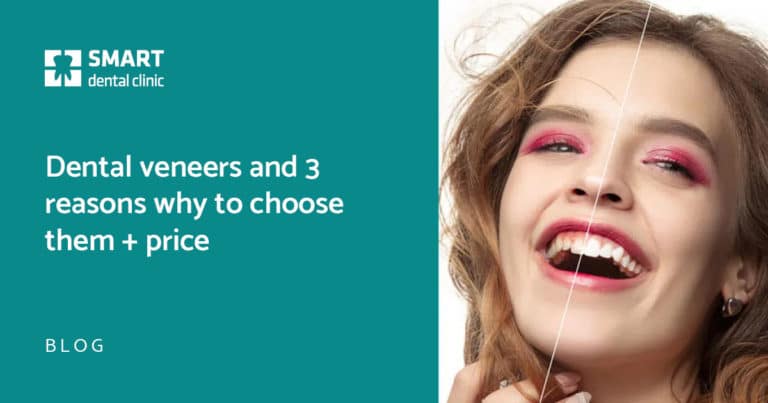Content of the article:
Dental hygiene
Do you think that your dental care is perfect and at the same time you have never experienced a professional dental hygiene session? We will help you and make your dental care even better!
Professional dental hygiene is an essential part of comprehensive dental care at our clinic and is almost always the first step in your treatment plan. It is the improper and insufficient oral hygiene that leads to development of dental caries, gingivitis or periodontitis, and thus is not only a treatment procedure, but mainly a preventive measure against occurrence of the aforementioned diseases.
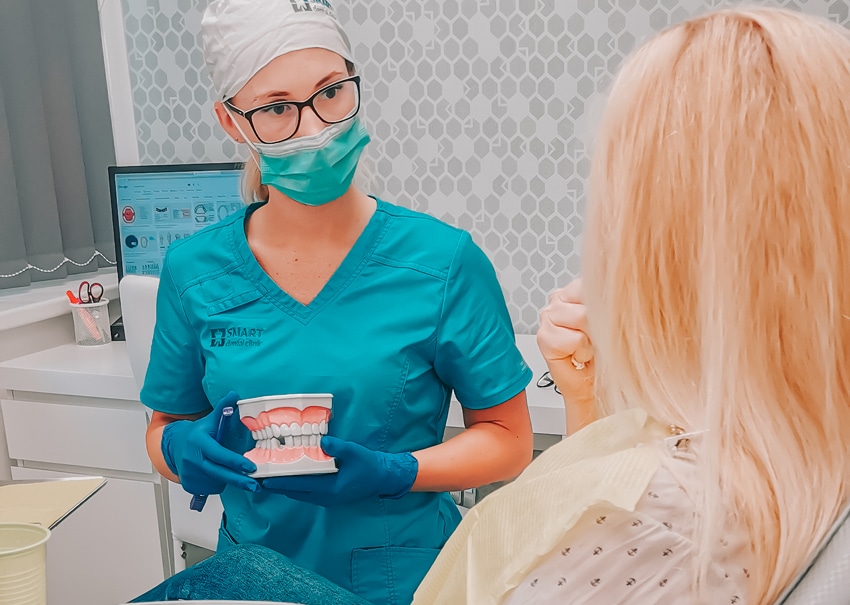
How is the dental hygiene done?
The first step in every treatment is to make our dental hygienist Zuzka familiar with your dental care habits. She will then acquaint you in detail with the condition in your mouth and proceed to explain the course of treatment.
Removal of impurities
Removal of impurities from the surface of teeth (most often tartar, plaque, and pigmentation from food, beverages and cigarettes) takes place by various methods. It is performed using ultrasound, which, due to the high frequency of its waves, disrupts the tartar structure.
Currently, this tartar removal is the fastest and most effective method combined with mechanical after cleaning. Mechanical after cleaning usually follows ultrasound treatment and consists of additional cleaning of tartar remnants in more difficult-to-reach places using scrapers and dental curettes.
Dental sandblasting (airflow)
Subsequently, airflow or sandblasting of teeth is done with a mixture of sodium bicarbonate with water and air, which – acting under pressure – removes plaques and especially dark to black pigmentation of smokers, coffee or tea lovers.
The advantage of sandblasting is that it removes plaque and pigments even from hard to reach places and is, therefore, very suitable for orthodontic patients (with fixed orthodontic devices). Often, the result of sandblasting is also that the teeth become whiter by a few shades thanks to the removed pigments. Sandblasting of teeth is followed by polishing the enamel with a fine paste.
Dental care
Our dental hygienist Zuzka will also recommend aids suitable for your dental care and will show you the technique of their proper use. This is necessary because we often witness that aids are used, but incorrectly, which is ultimately inefficient.
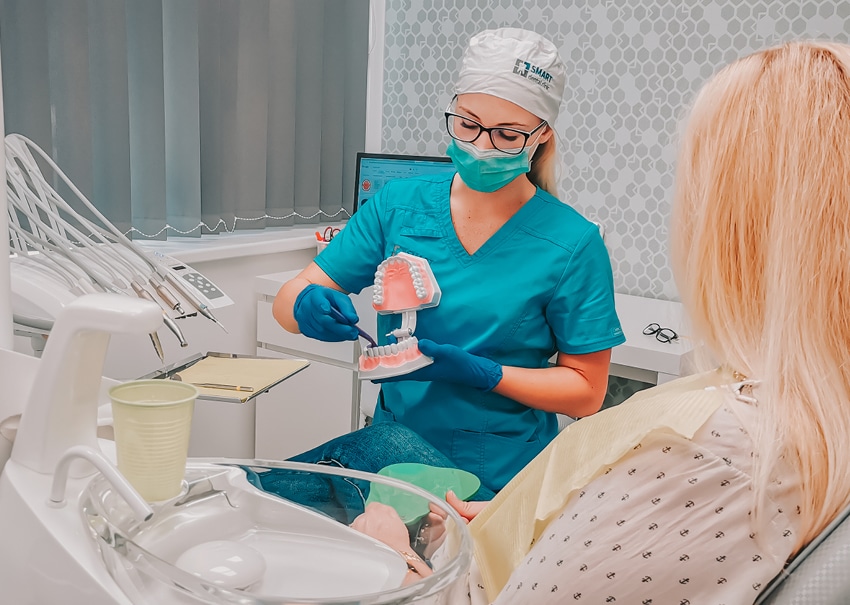
Fluoridation at the end
At the end of the treatment, teeth fluoridation or disinfection rinses are given the patients suffering from gingivitis or periodontitis. Fluoridation is an effective prevention of tooth decay and creates an acid-resistant protective film on the surface of the teeth. Disinfectant solutions help to reduce the number of harmful bacteria and favorably affect the healing of inflammations.
How often should you do dental hygiene?
Patients are advised to do dental hygiene every 6 months. However, if your teeth require it and the formation of tartar is excessive or you are being treated for periodontal disease, we certainly recommend that you have it more often. Our dental hygienist will advise you individually when it would be best to visit us again.
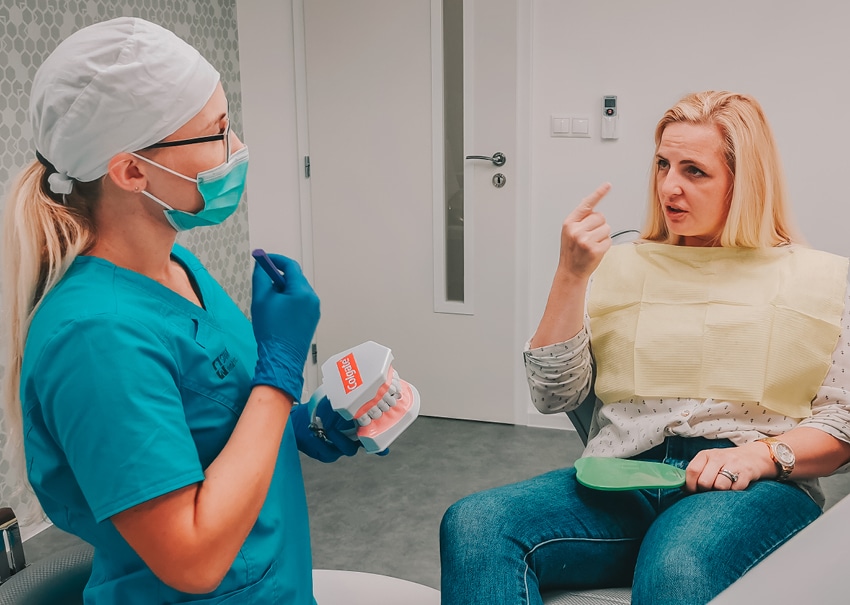
Is dental hygiene suitable also for young people?
Absolutely. It is important to know that dental hygiene is not only about the cleaning, but also about thorough instruction and the sooner you acquire proper and thorough dental care habits, the sooner you will prevent tooth decay or progression of already developed caries.
For more information, please visit the Dental Hygiene Services section.
Dental hygiene at Smart Dental Clinic
DID THE ARTICLE RESONATE WITH YOU?
MAKE YOUR DENTAL HYGIENE APPOINTMENT TODAY!
-
Dental hygiene 65 - 85 €
Removal of impurities by ultrasound with mechanical after cleaning and instruction on care;
Removal of plaques and pigments, particularly suitable for patients who smoke, drink coffee or tea;
Fluoridation or possible curettage in patients suffering from gingivitis or periodontitis.

Reginová Zuzana, DiS.
Dental hygienist, Bratislava











